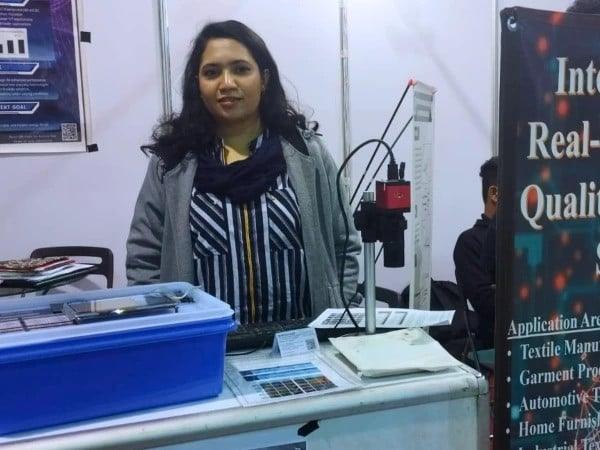Karachi:
A graduate from the University of NED in Karachi has developed an artificial system based on intelligence listed to solve one of the biggest challenges in the country’s textile industry: detect fabric defects before production.
Innovation, called Intellunspect, allows real -time identification of fabric quality problems, potentially save millions annually by reducing waste. The system promises to minimize the risk of rejected shipments in export markets due to defective textiles, a recurring problem in the largest export industry in Pakistan.
“I think this is the first analytical system in the world of this kind. With the proper support, Intellunspect could be a milestone to improve the quality of Pakistan’s textile sector, “said Suboohi Arif, the creator of the system and a postgraduate degree specialized in automation and application engineering.
The technology driven by AI can detect several defects in woven and woven fabrics, such as broken threads, spots, tears and holes. Unlike traditional inspections, Intellunspect analyzes unprocessed (gray) fabrics, as well as fabrics stained and printed in real time.
Suboohi said the tests in more than 3,000 samples of woven and tissue fabrics showed that the precision of the system was greater than 95% and 90%, respectively. The detection time varied from only 40 seconds to a maximum of 77 seconds.
The system uses high speed sensors and cameras installed in textile manufacturing lines. Quickly identify defects during the production process, reducing the costs incurred in later stages.
“This allows manufacturers to avoid products with defective fabrics and improve profitability by reducing production losses,” he said.
The system can be applied in several textile segments, including the production of garment garments, automotive textiles, home furniture and industrial textiles. Intellunspect improves efficiency, precision and continuity in production while reducing operating costs.
Suboohi is interested in collaborating with the interested parties of the industry to integrate the system into manufacturing facilities, helping to improve the quality of export products while maximizing profits for companies.
“This technology not only reduces costs, but also opens ways for data -based analysis, improving decision -making in the industry,” he added.
The textile sector of Pakistan, which represents more than half of the country’s exports, has long fought with quality control problems. If it is implemented on a large scale, Intellunspect could mark a significant transformation for the industry, which increases its global competitiveness.




